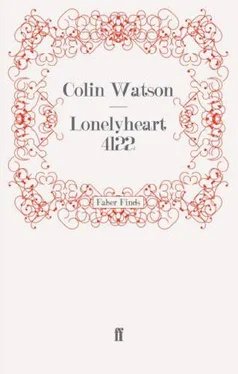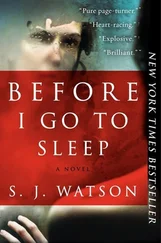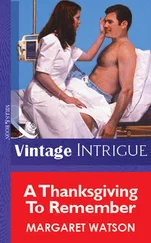She carried her two cases, which were not heavy enough to be troublesome, across the high, arched foot bridge and past the ticket office. She gave her ticket and a warm smile to the man leaning casually by the window. He looked more like a sailor than a railwayman. His calm, appraising stare followed her out of the booking hall. For her age, Lucy Teatime was remarkably trim and handsome. People instinctively approved of her, for there was in her appearance the flattering suggestion that she had taken pains to spare one personally the spectacle of yet another dumpy, disgruntled, defeated old woman.
For her part, she regarded self preservation (short of courting grotesqueness) to be as much a public duty as a private pleasure. Decrepit bodies were no less offensive than decrepit buildings; tasteless clothes as inexcusable as ugly shop fronts. There ought to be inspectors, she told herself sometimes, with power to demand the production of a lipstick or to serve a bosom restitution order.
Outside the station she looked round for a taxi, then changed her mind. London habit was here an extravagance, almost an eccentricity. One could walk without being mown down, so why not? Anyway, there wasn’t a taxi in sight.
She crossed the station square and began walking up the narrow lane that opened from it and led to where she could see an intersecting stream of cars and buses. This, she remembered from the guide map, would be East Street, at the other end of which was the Roebuck, the hotel she had selected for no better reason than that of liking its name.
East Street was a much busier thoroughfare than she had anticipated. It did not justify her optimism in regard to pedestrian safety. The footpath was about three feet wide, a mere ledge from which one was in constant danger of being extruded into the wheeled torrent. It was only when Miss Teatime found opportunity to look into the faces of her fellow walkers and see there either bland indifference or, just as often, a lively amusement at the expressions of desperately braking drivers, that she took courage from the discovery that the whole thing was really a game—a contemporary version of bear-baiting. She relaxed a little and turned part of her attention to the shops.
After a while, the street and the pavement widened and the congestion eased. There were space and time to stare around. Miss Teatime noticed a cinema and a Woolworth’s and a self service store plastered with the slogans of twopence-off evangelism. Not so different from Twickenham after all, she reflected. Then she looked up to the surmounting buildings and saw the dignified, gracious face of the eighteenth century. For the whole length of the street, these Georgian façades had survived and there was now an air of almost jaunty self-congratulation about their new coats and bright pastel colour-wash.
For some reason, the road was empty of traffic—it had probably coagulated at the scene of some particularly rash act of pedestrian provocation farther back. Miss Teatime crossed over. She had spotted a short row of market stalls. They proved disappointing. No piles of miraculously undervalued coach lamps, paper weights and copper kettles. Just garden plants, dress materials, cut-price sweets. Again her optimism sagged. But she was learning, she told herself; she’d soon have the measure of the place.
While standing still by the plant stall, she noticed a man cleaning a first floor window a few yards farther along. A bucket stood near the foot of the ladder. His barrow, on which rested another ladder, was in the gutter. She glanced at the barrow idly and again at the window cleaner. Then, incredulous, she stared at the barrow once more. In bold white letters along the side was proclaimed: THE QUEEN MUST MAKE WATER.
Miss Teatime looked covertly at passers-by to see if they, too, had seen the astounding message. None gave any sign of finding it unusual. Only one, a boy who had slipped from a group of companions, seemed at all concerned. Keeping one eye on the window cleaner, he walked warily past the ladder and let something fall from his hand into the bucket. Then he doubled back to his friends and stood with them, watching.
Soon afterwards, the man came down from the window. He had a pale, bird-like face and quick, worried eyes. He knelt by the bucket and plunged his leather into the water, swirling it about while he looked up and down the street like a nervous sentry. He withdrew the leather and with a single ferocious twist wrung it out.
The effect was horrible. From between his fingers there gushed and squirted blood.
Miss Teatime gave a little squeal. The man glared at her, then looked down. With a bellow of dread he sprang to his feet, dropped the encarmadined leather and staggered across the pavement.
“The grape!” he howled. “The accursed grape!”
Miss Teatime heard a tut of disapproval from the woman behind the stall. “It’s too bad of those boys. They’ll have him off his ladder one of these days.”
A packet of dye. Of course. She felt a bit cross at having squealed.
“They tease him, do they?” she said to the stallholder.
“Well, he’s got a thing about drink, you know,” the woman explained. “Religious.”
“Ah,” said Miss Teatime.
The man had recovered himself sufficiently to kick the bucket into the roadway. Muttering, he watched its contents drain away. Then he packed ladders and bucket on the barrow and swung it round in order to depart. Miss Teatime saw revealed on its other side the second half of his proclamation:...OUR ONLY DRINK BY LAW.
“I hope,” she said five minutes later to the girl in the reception office of the Roebuck, “that this is not a temperance hotel. The point hadn’t occurred to me when I booked.”
“Oh, no, madam. We’re fully licensed.”
“Excellent. In that case perhaps you would be good enough to have a little whisky sent to my room. Also a copy of the local paper, if you don’t mind.”
She went upstairs, accompanied by a chambermaid carrying her cases. The room, she saw with instant pleasure, overlooked the river. Through the net-curtained casement she glimpsed the tops of masts and the jib of a dock crane; it looked like the neck of an inquisitive dinosaur. The small bed had a frilled cover, white, with a wealth of fat pink roses. There was a matching armchair beside the gas fire. A pot of white cyclamen stood on a little table in the centre of the room. At the foot of the bed was one of those curious slatted stools, of uncertain purpose, that are found only in English hotel rooms, and in a corner was the inevitable plywood wardrobe that sways and emits the hollow rattle of hangers when one first tries to open the door but which, once broached, can never again be closed.
Miss Teatime had a brief, maidenly wash, changed her dress and shoes, and pulled the chair nearer the window. She had just sat down after looping back the curtain when the girl from the reception office arrived with a glass of whisky and a newspaper. Miss Teatime noted approvingly that the whisky was a double.
“Did you feel faint after the journey, madam?” The girl held the glass like a medicine measure.
“Not a bit of it. Cheers!”
The girl withdrew, looking slightly bewildered.
For a while, Miss Teatime watched the dark water of the river slipping by below. It flowed through a canyon of warehouse walls. They were of some kind of stone, pale cinnamon streaked with sage, and pierced high above the water line by dark apertures with gently rounded tops. From some of these jutted timber gallows. The ceaseless wheeling of gulls superimposed on the scene a fluid pattern of flashing white.
She turned at last from the window, finished her drink, and unfolded the Flaxborough Citizen .
It was a voluminous paper that tented the small woman in the armchair. She made a quick survey of its general contents, then folded it back at the second page of classified advertisements. This contained a Situations Vacant section and a Personal column.
Читать дальше












